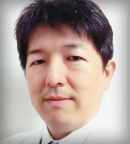As reported in The Lancet by Ken Kato, MD, and colleagues, the Japanese phase III JCOG1109 NExT trial showed that neoadjuvant triplet chemotherapy was associated with superior overall survival vs doublet chemotherapy among previously untreated patients with locally advanced esophageal squamous cell carcinoma undergoing esophagectomy with regional lymph node dissection. Doublet chemotherapy paired with radiotherapy did not show a significant benefit over doublet chemotherapy alone.

Ken Kato, MD
Study Details
In the multicenter open-label trial, 601 patients (529 male, 72 female) were randomly assigned 1:1:1 between December 2012 and July 2018 to receive either:
- Doublet chemotherapy (two courses of fluorouracil at 800 mg/m² per day on days 1–5 and cisplatin at 80 mg/m² per day on day 1 separated by 3 weeks (NeoCF group, n = 199)
- Triplet chemotherapy (three courses of fluorouracil at 750 mg/m² per day on days 1–5, cisplatin at 70 mg/m² per day on day 1, and docetaxel at 70 mg/m² per day on day 1 repeated every 3 weeks (NeoCF+D group, n = 202)
- Doublet chemotherapy (two courses of fluorouracil at 1,000 mg/m² per day on days 1–4 and cisplatin at 75 mg/m² per day on day 1 separated by 4 weeks, plus radiotherapy at 41.4 Gy (NeoCF+RT group, n = 200).
The primary endpoint was overall survival in the intention-to-treat population; the NeoCF+D group and the NeoCF+RT group were compared with the NeoCF group.
Overall Survival
Median follow-up was 50.7 months (interquartile range = 23.8–70.7 months). Overall survival at 3 years was 72.1% (95% confidence interval [CI] = 65.4%–77.8%) in the NeoCF+D group (hazard ratio [HR] vs NeoCF group = 0.68, 95% CI = 0.50–0.92, P = .006), 68.3% (95% CI = 61.3%–74.3%) in the NeoCF+RT group (HR vs NeoCF group = 0.84, 95% CI = 0.63–1.12, P = .12), and 62.6% (95% CI = 55.5%–68.9%) in the NeoCF group. Median overall survival was not reached (95% CI = 6.7 years to not estimable) in the NeoCF+D group, 7.0 years (95% CI = 5.2 years to not estimable) in the NeoCF+RT group, and 5.6 years (95% CI = 3.9 years to not estimable) in the NeoCF group.
Progression-free survival at 3 years was 61.8% in the NeoCF+D group (HR vs NeoCF = 0.67, 95% CI = 0.51–0.88), 58.5% in the NeoCF+RT group (HR vs NeoCF = 0.77, 95% CI = 0.59–1.01), and 47.7% in the NeoCF group. Median progression-free survival was not reached, 5.2 years, and 2.7 years, respectively.
KEY POINTS
- Neoadjuvant triplet chemotherapy was associated with significantly improved overall survival vs doublet chemotherapy.
- Doublet chemotherapy plus radiotherapy did not significantly improve overall survival vs doublet chemotherapy alone.
Adverse Events
Grade 3 or 4 neutropenia and febrile neutropenia occurred in 85% and 16% of patients in the NeoCF+D group, 45% and 5% of the NeoCF+RT group, and 23% and 1% of the NeoCF group. Esophagitis of any grade occurred in 61% of the NeoCF+RT group, 5% of the NeoCF+D group, and 3% of the NeoCF group. Treatment-related adverse events led to discontinuation of neoadjuvant therapy in 9% of the NeoCF+D group, 6% of the NeoCF+RT group, and 4% of the NeoCF group. Treatment-related death occurred in four patients (2%) in the NeoCF+D group, three patients (2%) in the NeoCF group, and two patients (1%) in the NeoCF+RT group.
The investigators concluded, “Neoadjuvant triplet chemotherapy followed by esophagectomy resulted in a statistically significant overall survival benefit compared with doublet chemotherapy and might be the new standard of care for [patients with] locally advanced esophageal squamous cell carcinoma who are in good condition in Japan. Neoadjuvant doublet chemotherapy plus radiotherapy did not show significant improvement of survival compared with doublet chemotherapy.”
Dr. Kato, of the Department of Head and Neck, Esophageal Medical Oncology, National Cancer Center Hospital, Tokyo, is the corresponding author for The Lancet article.
Disclosure: The study was funded by the Japan Agency for Medical Research and Development and National Cancer Center Research and Development Fund. For full disclosures of the study authors, visit thelancet.com.

